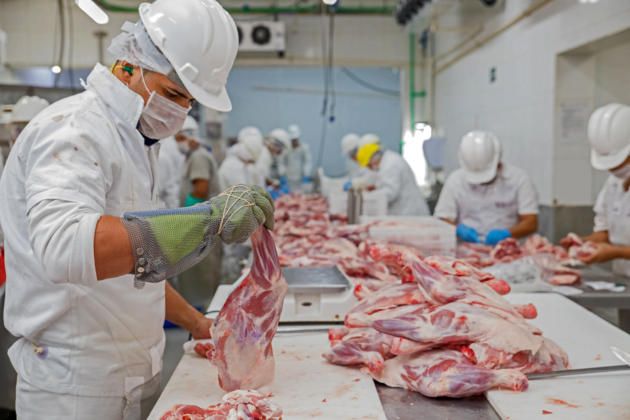
Sustainable Change: Lost in translation
By Cher Mereweather
Sustainability Meat &Poultry Anthesis Provision Editor pick Photo © Clio / Adobe Stock
Photo © Clio / Adobe Stock Felix Frankfurter, the 20th century U.S. Supreme Court Justice, famously said, “Life is a matter of semantics because words are the tools with which we work…everything depends on our understanding of them.”
From the perspective of someone whose job it is to interpret words and pass judgements (that can literally mean life or death) based on them, this makes a lot of sense. A recent conversation with Franco Naccarato, executive director of Meat and Poultry Ontario, brought home to me how much semantics matter, not just in courtrooms or boardrooms, but also right across our food industry. If we don’t get the words right, the impact can be huge.
I write this column about sustainability as part of my commitment to be constantly demonstrating how it offers real benefits to business as well as to people and planet. The meat industry has been one of the most challenging to engage in that conversation.
Meat is often seen as one of the larger contributors to climate change, and at the same time, one of the most exposed to its impacts. In many ways, it has been proactive in developing more sustainable practices: Maple Leaf Foods is regularly cited for its leadership and for its work on carbon neutrality. Further, meat processing typically has lower levels of food loss and waste than other areas of the industry. However, if you talk about sustainability with people running meat companies, which I do regularly, the message is clear: It is not a priority.
Franco explains, “Our industry is in a labour crisis, and we are struggling to see anything past that. Almost every firm is down on staff, which means that the leaders are stuck working in their businesses rather than working on them and can only focus on what’s directly in front of them—anything else is peripheral” for now.
My counterargument is that sustainability helps attract staff. The data is clear on this. Employers who are finding and keeping the people they need to grow their businesses have significantly higher ESG (environmental social and governance) scores than their competitors.
“Yes, but if you ask a room full of people what ESG means, you will likely get a lot of blank stares,” responds Franco. “Sustainability language isn’t part of our everyday so when consultants, academics and experts turn up and start talking about sustainability it doesn’t connect. But if they talk about better ways to save money on energy and production, or reduce food waste, or get the business results of more relationships with customers then they relate because they are working on these things every day. Without knowing it, they are taking action on sustainability in all aspects of their work. They may not realize what they do is sustainable. They do it because it just makes sense to their business. Where we need help is in identifying and defining sustainable practices and teaching operators how to measure and track their progress.”
It’s all about semantics. The right words matter. The truth is that we all want the same thing—a more sustainable food system. Yes, sustainability is technical. It does require new skills and learning them can take time, but it shouldn’t feel inaccessible.
In fact, while it is easy to point fingers at parts of the food industry for being slow to embrace sustainability, those of us who spend our lives doing this work also need to recognize that the language we use is likely part of the problem. The onus is on us to find ways to fix that. Words are indeed the tools with which we work, and everything does indeed depend upon them.
Cher Mereweather, CEO of Anthesis Provision, is a Canadian-based food industry sustainability expert.
This column was originally published in the October 2022 issue of Food in Canada.
Print this page